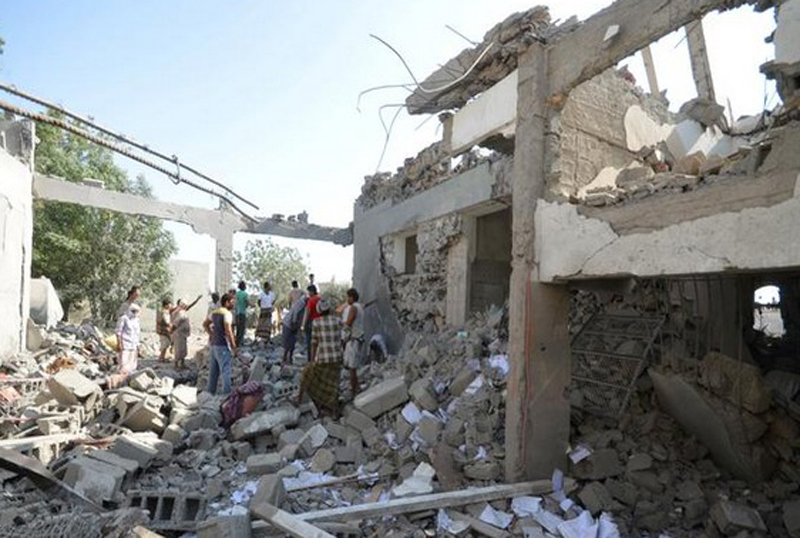Hodeid: A UN-led team tasked with monitoring a ceasefire met Wednesday in Yemen’s flashpoint city of Hodeida, after sporadic clashes underscored the fragility of the truce which began last week.
The ceasefire in the rebel-held city, home to a Red Sea port vital for millions at risk of starvation, is part of a peace push seen as the best chance yet of ending four years of devastating conflict.
Retired Dutch general Patrick Cammaert is heading the joint committee, which includes both government officials and Huthi rebels, and chaired its first face-to-face meetings on Wednesday.
The committee gathered once over lunch and again shortly afterwards for talks on the implementation of the truce and planned troop withdrawals, Yemeni sources close to the discussions said.
Members of the government delegation arrived to the sit-down in UN vehicles, a Yemeni official said.
UN spokesman Stephane Dujarric has described the meeting as “one of the priorities” of Cammaert’s mission.
A truce in Hodeida and its surroundings went into effect on December 18 but has remained shaky, with the two sides accusing each other of violations.
Government forces — backed by a Saudi-led coalition — and the Iran-aligned Huthis exchanged gunfire for a few hours on Wednesday morning, an AFP correspondent reported.
The sound of heavy artillery could be heard to the east of the city.
An official for the Saudi-led coalition said Tuesday that 10 pro-government troops had been killed since the ceasefire went into force, accusing the Huthis of 183 violations.
“The fact of the matter is, unfortunately, that the Huthis are clearly looking to provoke a response from the coalition and no one is holding them accountable,” he told AFP.
The rebels, in turn, said on the same day that they had recorded at least 31 violations in the past 24 hours by pro-government troops, according to the Huthi-run Al-Masirah TV.
The war between the Shiite Huthi rebels and troops loyal to President Abedrabbo Mansour Hadi escalated in 2015, when he fled into exile and the Saudi-led military coalition intervened.
Since then, the war has killed some 10,000 people, according to the World Health Organization, although human rights groups say the real death toll could be five times as high.
The conflict has unleashed a major humanitarian crisis and pushed 14 million Yemenis to the brink of famine.
– ‘Right to offensive’ –
A coalition official warned Tuesday of a renewed offensive on Hodeida if violations of the ceasefire persist.
“We look forward to supporting Cammaert in his efforts… we genuinely hope he succeeds, but if not, we reserve the right to recommence an offensive to liberate the city,” said the official who spoke on condition anonymity.
Cammaert arrived in Hodeida on Sunday from the rebel-held capital Sanaa, after meeting with government officials in Aden.
Yemen’s warring sides agreed at peace talks in Sweden this month on the ceasefire to halt an offensive by government forces and the coalition against Hodeida.
The UN Security Council unanimously approved a resolution authorising the deployment of observers to oversee the truce.
The UN monitoring team aims to secure the functioning of Hodeida’s port and supervise the withdrawal of fighters from the city.
The text approved by the Security Council “insists on the full respect by all parties of the ceasefire agreed” for Hodeida.
It authorises the United Nations to “establish and deploy, for an initial period of 30 days from the adoption of this resolution, an advance team to begin monitoring” the ceasefire, under Cammaert’s leadership.
[source_without_link]AFP[/source_without_link]

